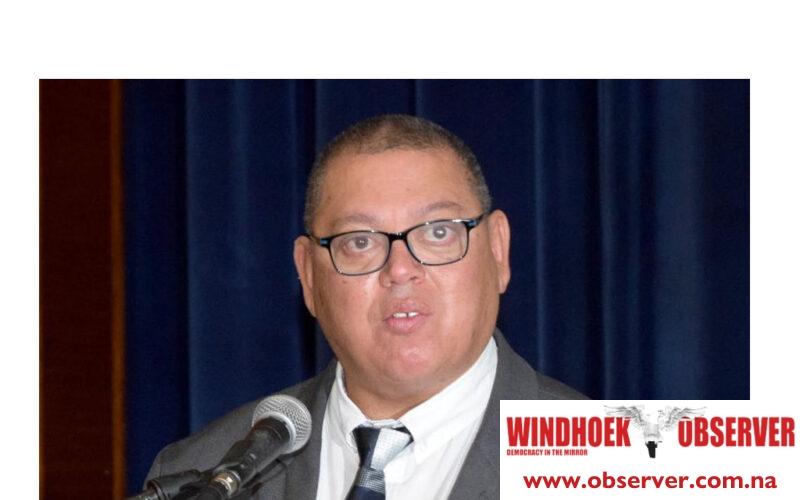Niël Terblanché
Namibia’s Minister of Fisheries and Marine Resources, Derek Klazen, reiterated the importance of responsible fishing practices, conservation, and good corporate governance for the country’s fishing sector.
Klazen delivered his annual fishing industry address in Walvis Bay where he urged Namibians to unite in their commitment to responsible fishing practices, and highlighted the need for collaboration, open dialogue, and innovation.
He stressed that these principles are crucial for safeguarding the health of Namibia’s oceans, ensuring the prosperity of its fishing industry, and leaving a legacy of responsible stewardship for future generations.
He stressed the invaluable resources found in Namibia’s oceans, rivers, lakes, dams, and other water bodies, and how it is the collective duty of every citizen to preserve and sustainably manage these resources for the benefit of the present and future generations.
Minister Klazen highlighted the importance of taking stock of past and current developments in the fishing sector, including the state of fish stocks, economic performance, aquaculture and inland fisheries, and monitoring, controlling, and surveillance of fisheries in Namibia.
Sustainable fisheries management was identified as the overarching policy priority of the Ministry, with Klazen stressing the need for scientifically informed catch limits, regulations to prevent overfishing, and the recovery of depleted stocks.
He acknowledged the challenges faced by the fishing industry, including the impact of the COVID-19 pandemic and global economic slowdown, and highlighted the government’s commitment to reviving the fishing sector with measures aimed at stimulating economic growth, creating jobs, and supporting communities dependent on fishing.
Conservation and environmental protection were described as core endeavours, with Klazen emphasizing the interconnectedness of ocean health with the planet’s overall health. He called for safeguarding aquatic ecosystems, minimizing bycatch, and protecting biodiversity within Namibia’s waters.
Minister Klazen also provided updates on specific initiatives and challenges within the fishing industry:
Hake Fishery Certification: The Ministry has been working to maintain the Marine Stewardship Council’s ecolabel certification status for the hake fishery.
Mariculture Development: The Ministry has made progress in mariculture, with the sector producing approximately 493 metric tons of products in the 2022/23 financial year. Land access, finance, environmental challenges, and aquaculture development were addressed.
Corporate Governance: Klazen highlighted concerns about corporate governance issues within fishing companies, emphasizing transparency, information sharing, and ethical management. Consultations with Fishing Associations: The Ministry plans to engage with fishing associations to address sector-specific challenges in the first quarter of 2024.
Review of Landed Values: The Ministry is reviewing landed values for all commercial species harvested in Namibia, acknowledging changing market conditions.
Bycatches and Overcatches: High levels of bycatches and overcatches, especially in hake, mackerel, and pilchard, were identified as concerns. Measures to control these issues were under consideration.
Scorecard for Quota Allocation: The Ministry is prioritizing the completion of a comprehensive quota allocation mechanism (Scorecard) and will engage industry stakeholders in finalizing it.
Data Collection: Right holders were urged to provide accurate statistics to the Ministry, especially as the 2022/23 fishing season concludes.
Review of Variation of Fishing Rights Criteria: A study to review the criteria for varying fishing rights will take place during the 2024/2025 financial year.
Klazen reiterated the crucial role each stakeholder plays in preserving and sustaining Namibia’s ocean resources.
He reiterated that responsible stewardship and adaptive strategies are imperative as the fishing industry navigates a changing environment, ensuring sustainability, equity, and economic viability for future generations.




